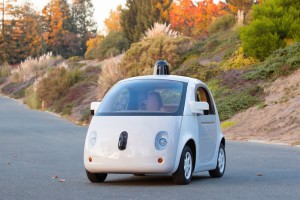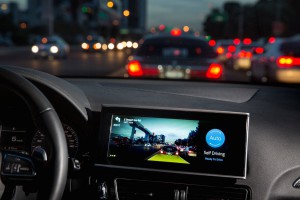With the first semi-autonomous vehicles already rolling across the nation’s highways, Congress wants to learn where the technology is heading, and will hold hearings next week.
Among those set to testify is Chris Urmson, the second-in-command for Google’s self-driving car program. He will be joined by other industry officials from General Motors, auto supplier Delphi and Lyft, the nation’s second-largest ride-sharing service.
The committee says it hopes to learn more about “advancements in autonomous vehicle technology and its anticipated benefits for Americans.”
But lawmakers also are expected to ask questions about what happened on February 14th, when a Google autonomous prototype drove into the side of a commuter bus. The tech firm’s program has confirmed more than a dozen minor crashes to date, but this was the first in which Google said it shares at least “some responsibility” for the accident.
(China launches pilot program that could track every vehicle. Click Here for the story.)
Google is considered one of the leaders in autonomous vehicle development, but most major automakers – and a number of key suppliers, such as Delphi – have also entered the field. Tesla Motors recently launched its AutoPilot system, which allows hands-free driving on limited-access roadways. Nissan has promised to put its first fully autonomous vehicle into production by 2020. And while it has not confirmed plans, Google has been dropping hints it may produce an autonomous car of its own.
(Google on a hiring spree for automotive program. For more, Click Here.)
Ride-sharing services have expressed a strong interest in the technology, as well. Market leader Uber has suggested it may one day field a fleet of driverless vehicles, something that could help it lower costs and become a more viable alternative to vehicle ownership. GM, meanwhile, recently announced a $500 million investment in Lyft, which could also turn to self-driving vehicles.
The White House has tried to stake out an aggressively proactive policy on autonomous vehicle technology. In January, U.S. Transportation Secretary Anthony Foxx announced the administration would seek $6 billion for a pilot connected-car network seen as a precursor to autonomous driving. He also said the National Highway Traffic Safety Administration would take steps to encourage the development of hands-free technologies.
Then, on February 4th, NHTSA ruled that it would view the artificial intelligence system used by Google as a driver under federal law.
But there are still plenty of obstacles, including a myriad of state laws and regulations that hinder broader field testing of autonomous technology. Congress could be asked to step in and come up not only with funding but also nationwide standards. Another issue that lawmakers may eventually have to address is one of liability.
Automakers and insurance companies alike are seeking guidance fearing that without clear rules, the arrival of autonomous vehicles could touch off a wave of crippling legal battles in the event of a crash.
The hearing, chaired by South Dakota Republican Senator John Thume, will be held on March 15th.
(Apple fuels speculation it will build autonomous electric vehicles. Click Here for the latest.)


